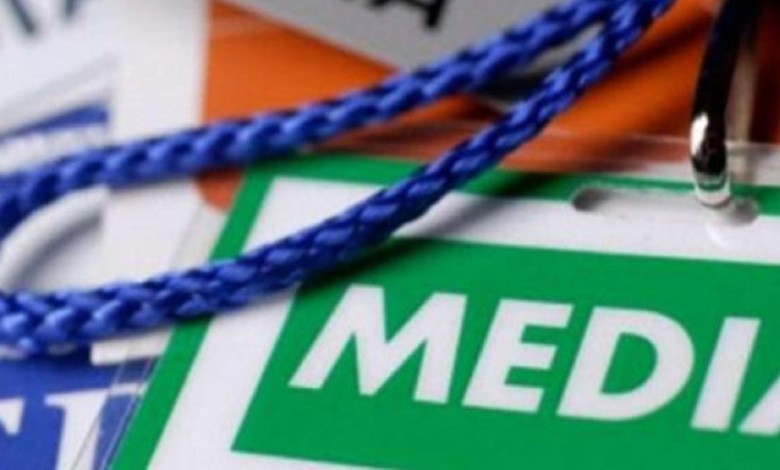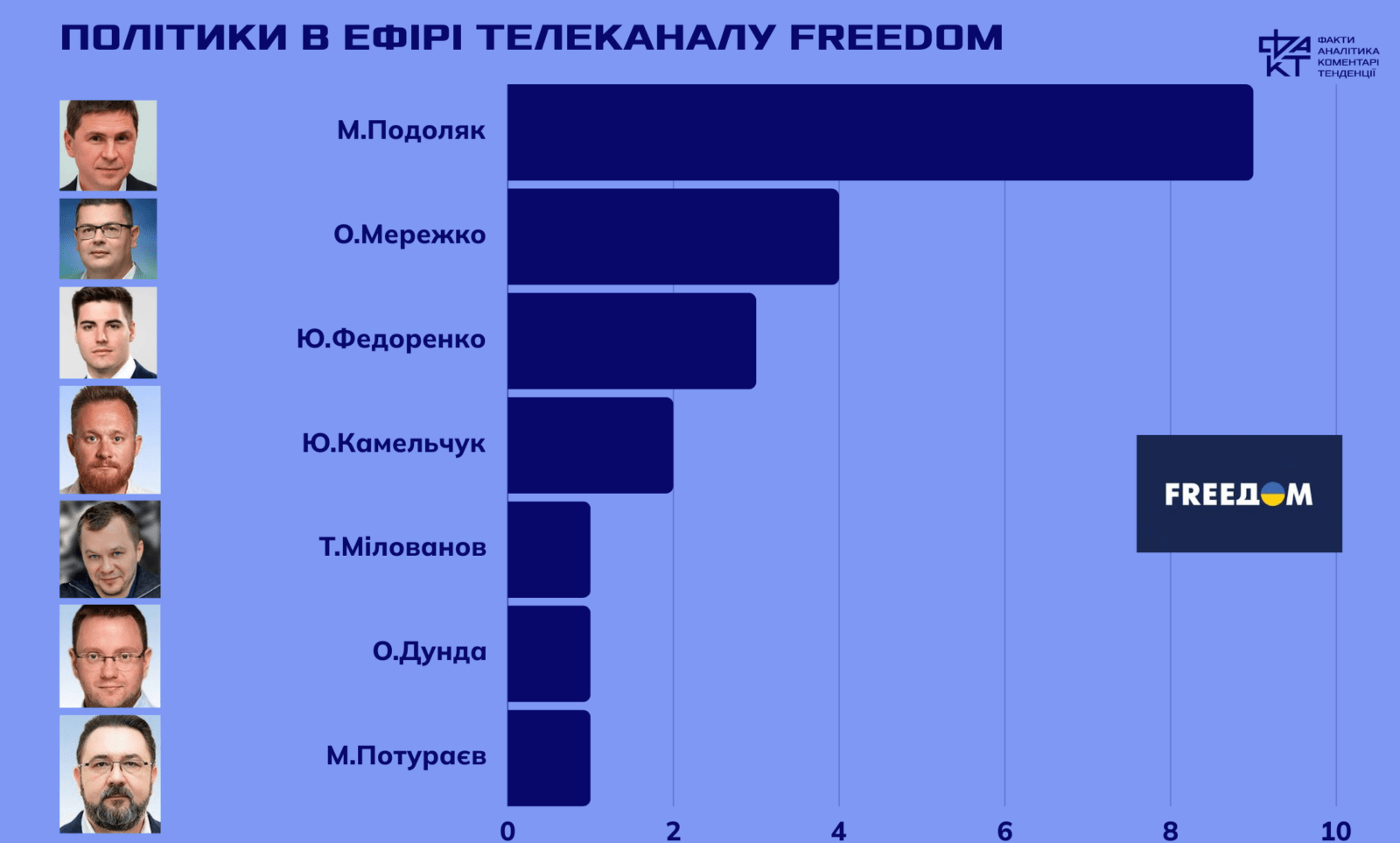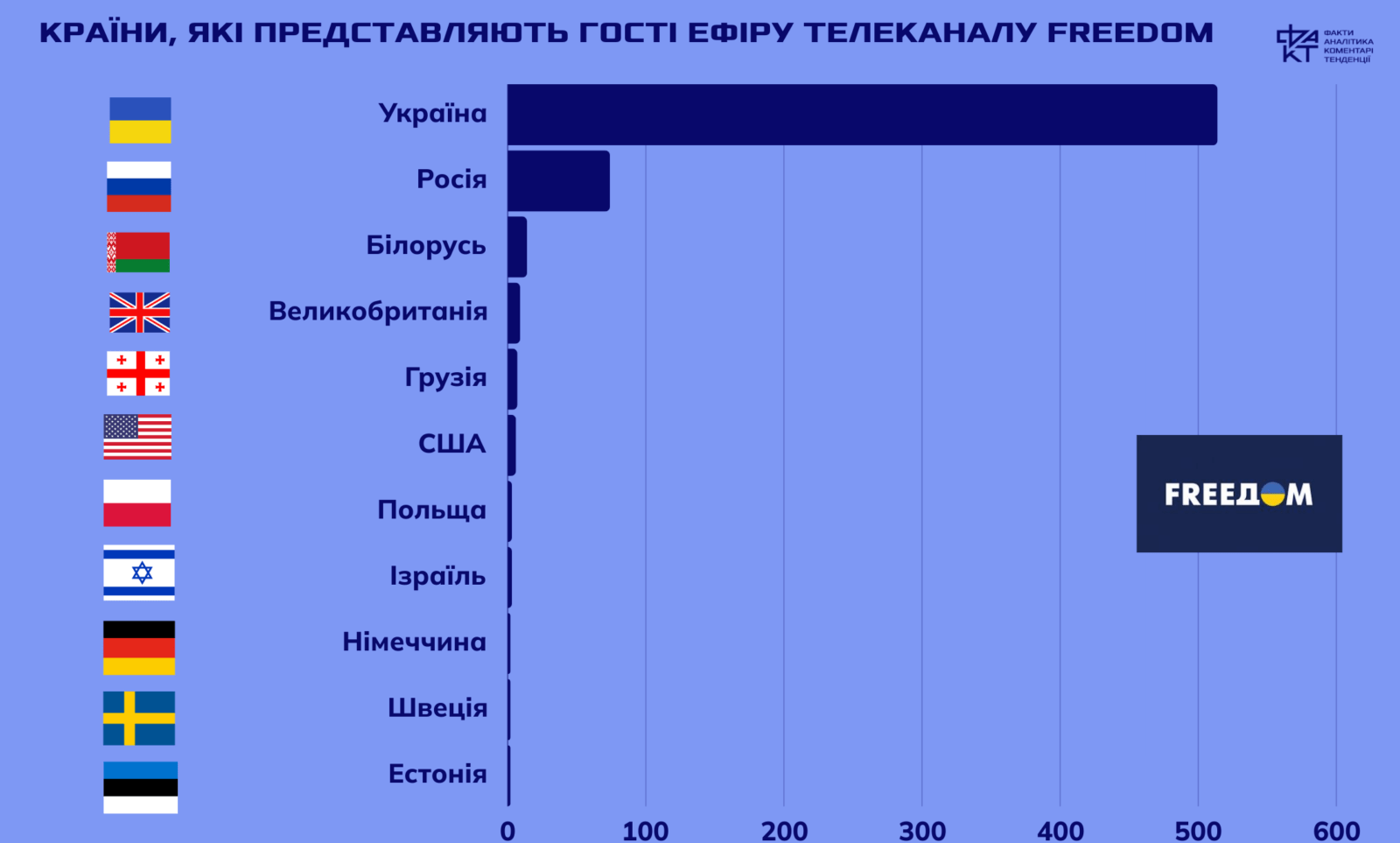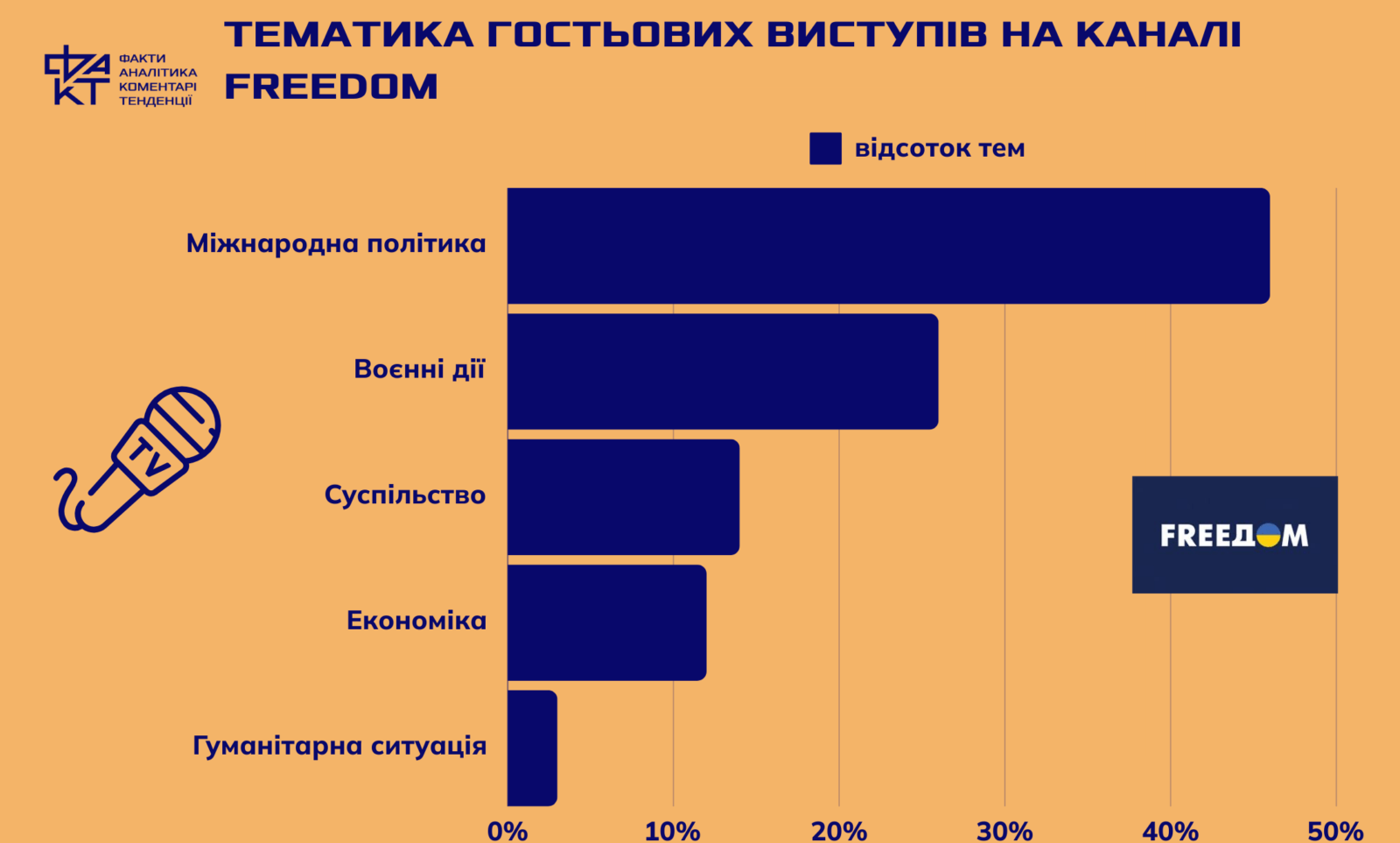Power’s Monopoly on Information: How the Media Influence Public Opinion in Wartime

We are what we read, see, hear, and perceive. It is not news that our thoughts are formed under the influence of those evaluations and judgments that we hear constantly, day in and day out. This pattern is taken into account by opinion leaders who try to shape our attitude to what is happening in the country and abroad. It is clear that the institute of key communicators during the war is of exceptional importance, because it determines the line of interpretation of events, and with it the state of public opinion and public mood. There are no questions regarding the participation of representatives of the authorities in all media arenas of the country, because it is they who dictate the news agenda and the methods of their interpretation. However, there is one “but”. Should officials from power institutions use up the entire guest airwaves with their speeches? At one time, the “Edyny Novyny” telethon was created solely in order to prevent the spread of war information and to prevent the manifestation of moral panic in society. Nowadays, the situation in the media space has changed. A mainstream interpretation of the events of the war was formed. At the same time, viewers are looking for alternative content on issues not related to military actions. “Marathon” news diluted the assessments, judgments, emotions of media experts of various stripes – from opposition politicians to “good Russians”. According to the data “MediaMaker”, only 20% of viewers still consider the marathon format relevant and consume news from “Edyny noviny. According to the KMIS survey, 39% of viewers trust the telethon. What does this statistic mean? The fact that people are tired of journalism that broadcasts to them only one point of view – pro-government. Among the key objections to the telethon are restrictions on freedom of speech and control over television.
Similar accusations are being made by media critics and against the FreeDom TV channel, which provides foreign broadcasting. The channel is part of Ukraine’s information strategy aimed at disseminating information about events in and around Ukraine outside the country. FreeDom is evaluated as an important tool for spreading true information about Ukraine on the international arena, which is especially important in the conditions of information warfare and geopolitical tensions. According to platform estimates “Media detector”, FreeDom fulfills its main goal – clearly hits the right audience in the digital segment of the foreign media space. Every week, several videos of the channel make it to the top of Russian and sometimes Kazakh YouTube.
In total, the channel has 4 billion views. Of them, up to 85% reach the Russian audience. It is obvious that FreeDom effectively copes with the role of a foreign speaker. At the same time, approaches to the formation of content and especially to the organization of guest broadcasts come under the crosshairs of media critics. Why is it necessary to review the government’s monopoly on comments, assessments, and forecasts? Probably so that the channel does not suffer the fate of a telethon, which is perceived as a mouthpiece of the government.

Having analyzed the FreeDom broadcast, “Media Detector” reported on the political record of July. In a month, 21 politicians were invited to the channel’s studio for thematic comments. All of them are representatives from the “Servant of the People” or the Office of the President. Mykhailo Podolyak, who traditionally comments on all domestic and foreign political issues: aid to Ukraine, Russia’s red lines, F-16, economic recovery, the position of partners, etc., takes the first place in terms of the number of appearances on the channel, quite expectedly.
In terms of nationality, Ukrainians take the top spot among commentators. The second place is occupied by the Russians, which can be explained by the audience orientation of the channel. Who are these people? The most active speakers on the channel are Olga Kurnosova, a Russian political activist and member of the anti-Putin opposition; sociologist Ihor Yakovenko, known for his pro-Ukrainian position; Serhii Zhirnov, a former Soviet spy (KGB major), who has been living in France since 2001, where he received the status of a political exile. About Zhirnov “Babel” edition jokes: “Former spy Serhii Zhirnov knows almost everything about Putin and Russia.” However, journalists and the media created such an image for him. Among the active Russians, Ilya Ponomarev, a Russian oppositionist, ex-deputy of the State Duma of the Russian Federation from the “Just Russia” party, should also be mentioned; Maksym Blunt, economic columnist and publicist of the Radio Liberty Russian Service; Yan Matveev, a military columnist for the “Popular Politics” YouTube channel, who was recently declared wanted in Russia. Commentators of Russian origin can be seen in the British segment of guest broadcasts. This is, for example, Andriy Ostalskyi, a writer, ex-director of the Russian Air Force service.

Quite often, Belarusians appear in FreeDom’s guest broadcasts. Among them are Franak Vyachorka, advisor to Svitlana Tykhanouska; Pavlo Latushko, member of the presidium of the Coordination Council of the Belarusian opposition; Tetyana Martynova, Belarusian journalist, founder of the “Stop being afraid” group, Anna Krasulina, press secretary of Svitlana Tykhanouska. The opposition of these key communicators is obvious.
Speakers are usually invited to the FreeDom broadcasts who are somehow connected with Ukraine and therefore have carte blanche to express their opinions and assessments. In the British segment of opinion leaders, this is, for example, Peter Dickinson, publisher of Business Ukraine and Lviv Today magazines. or Piotr Kulpa, director of programs of the School of Ministers of the Kyiv School of Public Administration, ex-Minister of Labor of Poland, who accordingly represents the Polish segment.

As for the topics of the guests’ speeches, the most time was spent on discussing international politics — 46.6%. The number of speeches about military actions remains stable and amounts to 26.1%. Topics concerning society occupy 14.3% of airtime. The economy is discussed in 12.8% of cases, and the humanitarian situation is the topic of 3.2% of comments.
We hope this topic ranking meets the expectations of the FreeDom channel audience.
In the conditions of war, the role of foreign language is significantly strengthened. In addition to reputation and image functions, it takes care of public diplomacy issues, becomes a tool in the promotion and protection of national interests abroad.
At the same time, the need for a balanced presentation of information and diversity of opinions remains relevant to ensure objectivity and true freedom of speech in the media space of Ukraine and abroad.





